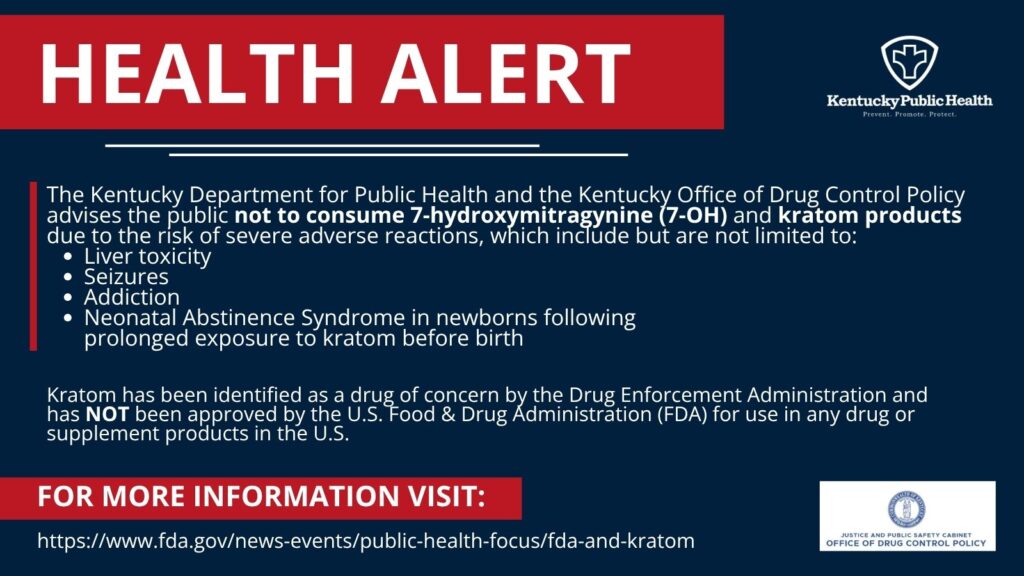The Kentucky Department for Public Health and the Kentucky Office of Drug Control Policy advises the public not to consume 7-hydroxymitragynine (7-OH) and kratom products

Kratom is often used to self-treat conditions such as pain, coughing, diarrhea, anxiety, depression, opioid use disorder and opioid withdrawal. Kratom contains two main chemical compounds, mitragynine and 7-hydroxymitragynine (7-OH) that bind to the same receptors in the brain as opioid drugs like morphine and heroin. Kratom has NOT been approved by the U.S. Food & Drug Administration (FDA).
Kratom in its modern forms, especially 7-OH when concentrated or synthetically made, poses new and serious risks to the health and safety of consumers. There are no guarantees that:
- kratom products contain the ingredients that the packages claim.
- Active ingredients are present in the correct concentrations.
- Kratom products are free from contaminants or other drugs.
Synthetic versions of kratom are often more potent than the naturally occurring compound. This significantly increases the risk of overdose, severe health issues, and death.
Risk of severe reactions from consumption of these products include:
- Liver toxicity
- Seizures
- Addiction
- Neonatal Abstinence Syndrome in newborns
- Following prolonged exposure to kratom before birth can cause withdrawal symptoms in newborns such as:
- Jitteriness
- Irritability
- Muscle Stiffness
- Following prolonged exposure to kratom before birth can cause withdrawal symptoms in newborns such as:
Kratom leaves are made into a variety of products, including:
- Drinks
- Pills
- Teas
- Gummies
- And more
There are no FDA approved kratom drug products or over the counter drugs containing kratom, or its ingredients- mitragynine, or 7-OH-mitragynine that are legally on the market in the U.S. For more information regarding this public health focus and advisory, please see the formal announcement: FDA and Kratom | FDA